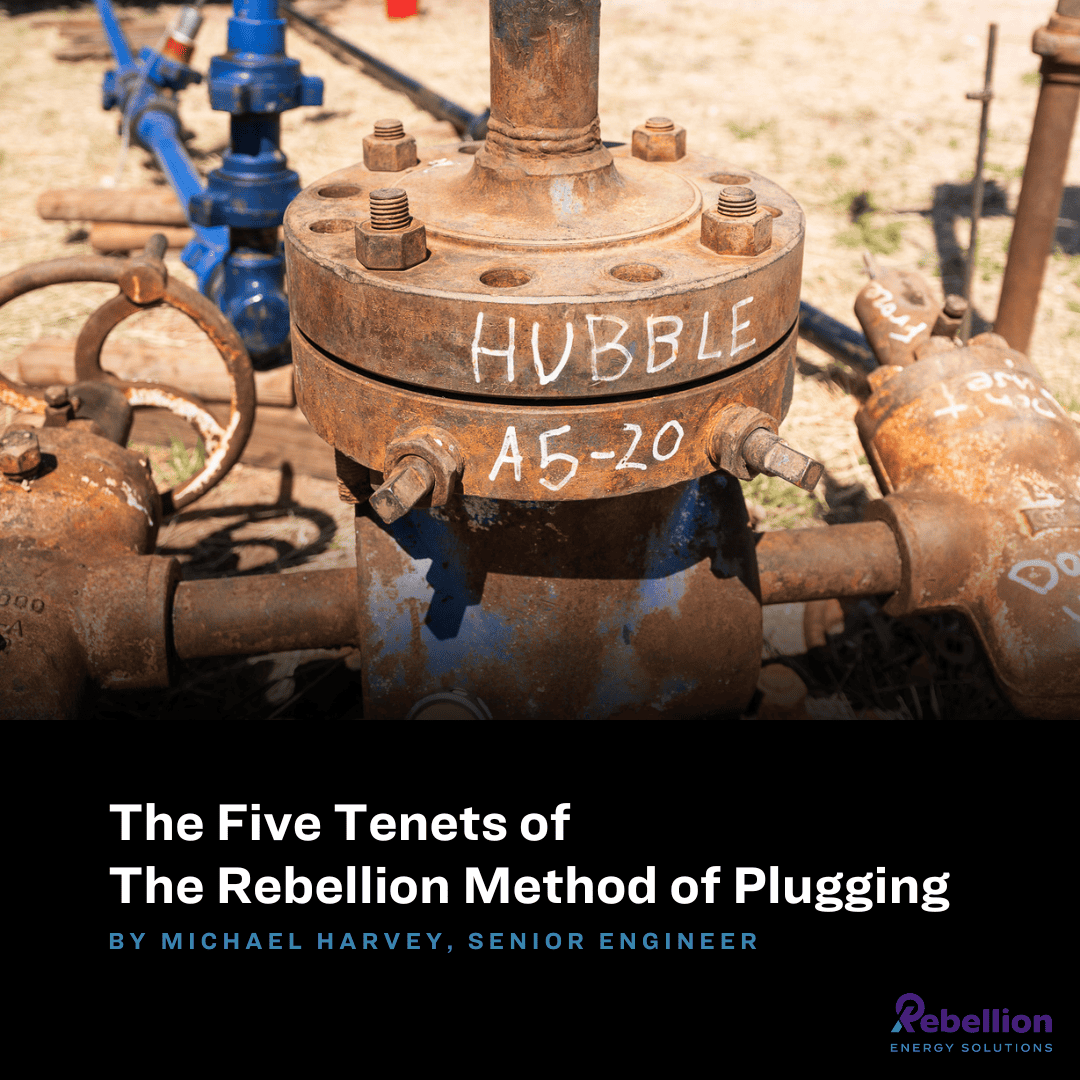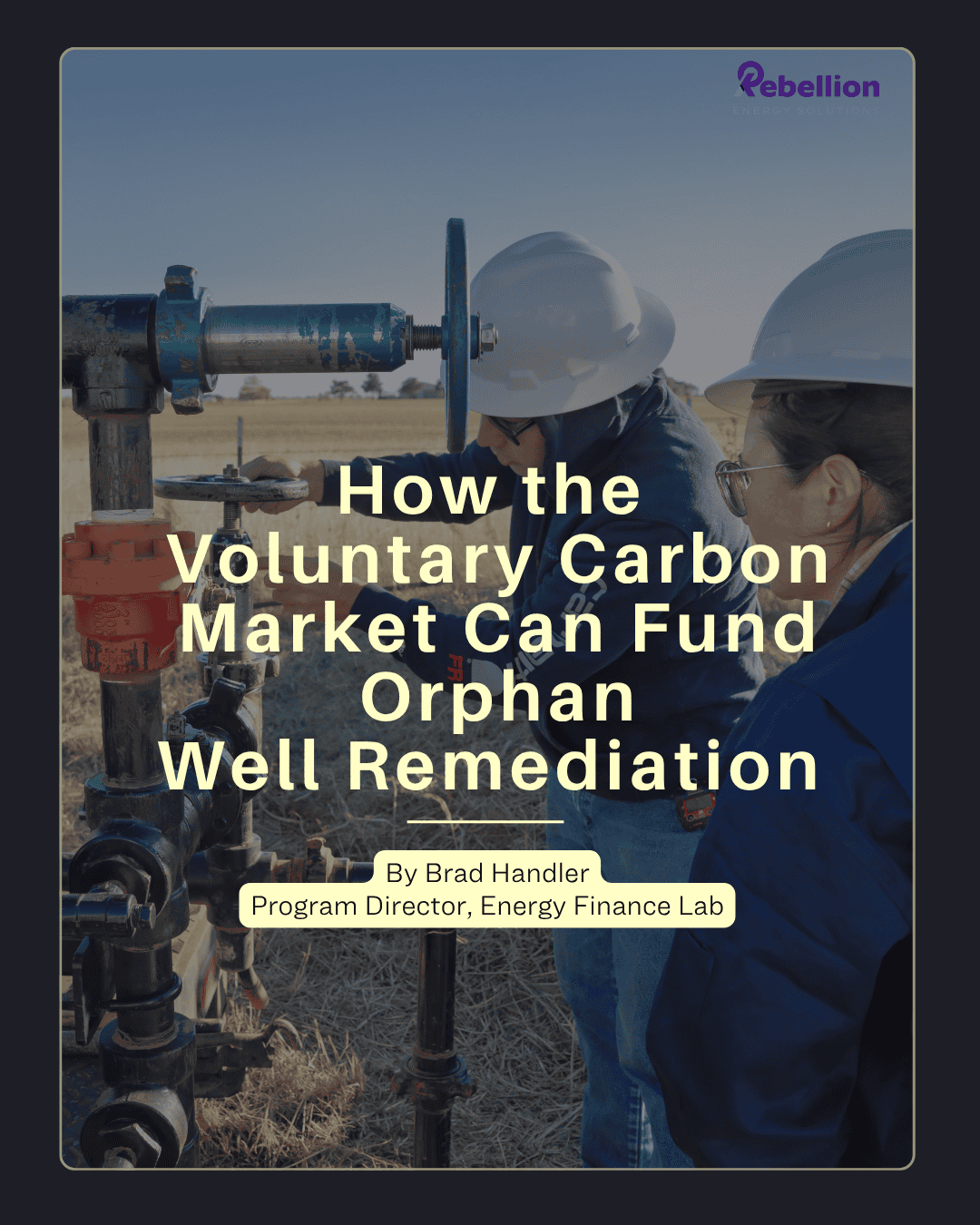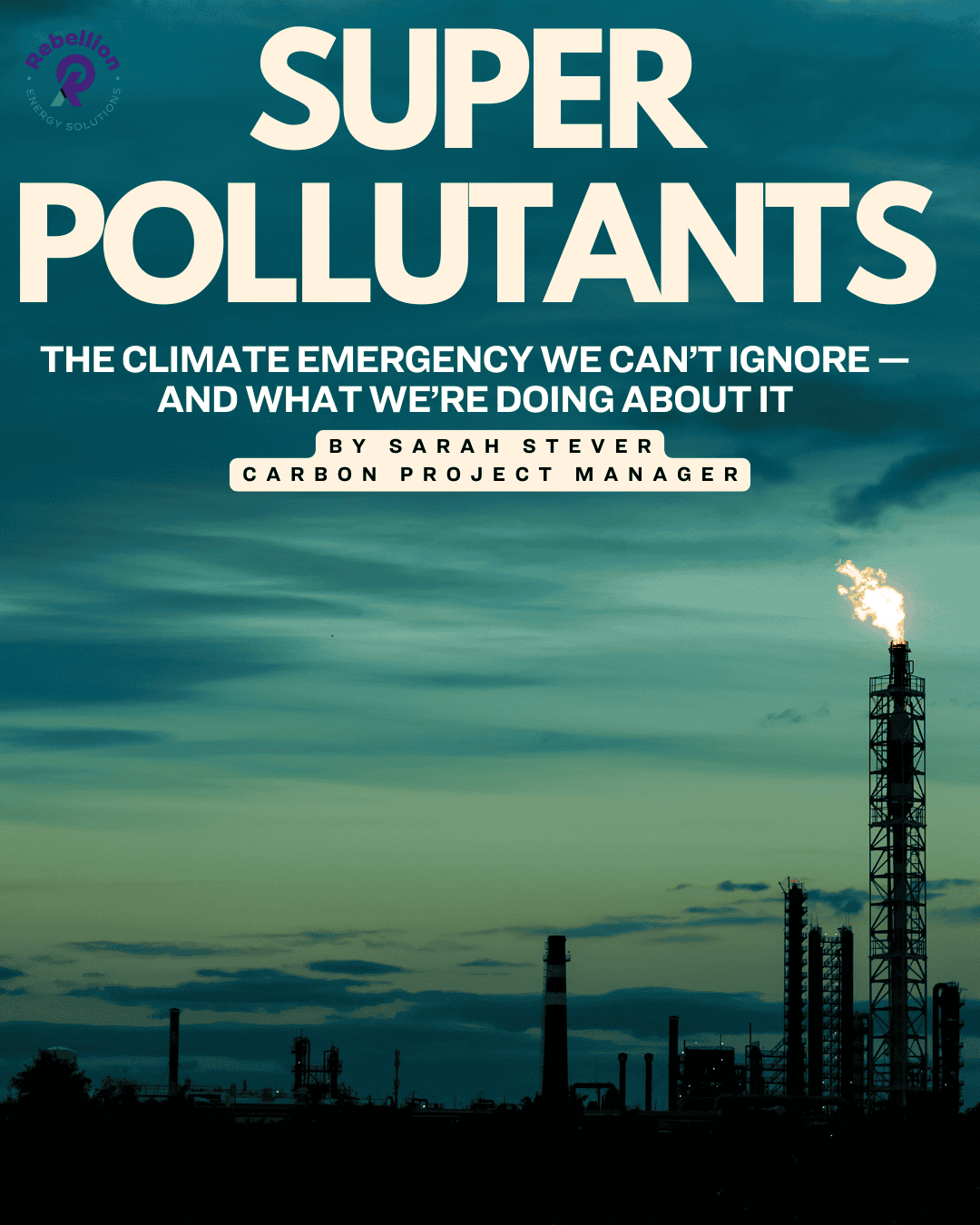Celebrate Earth Day: Plant Trees and Plug Wells
As we celebrate Earth Day this year, we’re thinking about all the ways we can support the environment – from planting trees and pollinators, from recycling to plugging wells.
Carbon credits are an essential tool in the fight against climate change, creating market-driven incentives to reduce and offset emissions. However, not all carbon credits are created equal, and it can be hard to decide where to invest.
While nature-based solutions like reforestation play a vital role in long-term carbon sequestration and ecosystem restoration, abatement credits—especially those targeting methane emissions—are critical for immediate climate impact.
Supporting All Climate Efforts, Prioritizing the Most Urgent
Our Rebels fully support the expansion of reforestation, conservation, and other nature-based carbon credit projects. These are essential components of a comprehensive climate strategy. At the same time, we believe the climate can’t afford to wait. Methane abatement is one of the most urgent and effective levers we have to slow warming in the near term.
Stopping known methane leaks today delivers an immediate climate benefit while we continue scaling nature-based and other long-term carbon removal efforts.
At Rebellion, our projects stop emissions at the source almost immediately. We also deliver long-term environmental benefits—like biodiversity restoration and water-cycle repair—around the land where orphan wells exist. These co-benefits are already real, even if not yet formally recognized within carbon crediting frameworks.
Investing in Well Plugging: A High-Impact Climate Solution
Abatement carbon credits that fund well-plugging efforts offer one of the most immediate and measurable ways to stop methane emissions. By sealing these orphan wells, companies like Rebellion Energy are actively preventing a known source of greenhouse gas pollution. This is not theoretical carbon sequestration—it’s a direct, quantifiable reduction of harmful emissions.
Investing in well plugging is not just about climate benefits; it also has economic and environmental advantages. These efforts create jobs in remediation, reduce health risks for nearby communities, and help restore landscapes previously impacted by oil and gas activity. Unlike some offset projects that rely on assumptions about future carbon absorption, plugging a well provides verifiable, near-instant emissions reduction.
For businesses and investors looking to make a meaningful environmental impact, prioritizing abatement credits—especially those focused on wellplugging—ensures that resources go toward stopping emissions at their source. Every ton of methane prevented from leaking today is an immediate win for the climate.
A Future Built on Collaboration
By directing investment toward solutions that cut emissions now, we create a stronger foundation for a sustainable future—one where both nature-based and engineered abatement efforts work together to drive real climate progress.
For more information, reach out to us at info@rebellionenergy.com.
For your safety, please avoid orphan well sites unless you have proper training, including hazard recognition, safety equipment and emergency procedures.




